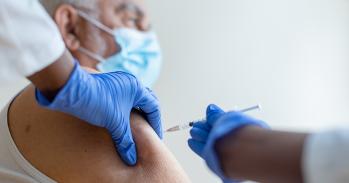
Scientists have identified a diabetes drug which halves the mortality rate of a deadly infectious disease found throughout Southeast Asia and Northern Australia.
Scientists have identified a diabetes drug which halves the mortality rate of a deadly infectious disease found throughout Southeast Asia and Northern Australia.
Roughly half of all patients with melioidosis have diabetes as a risk factor.
Dr. Gavin Koh
Melioidosis, caused by a soil dwelling bacterium (Burkholderia pseudomallei) that is present in certain regions of the world, results in severe infections include bloodstream infections and pneumonia. Death results in up to 40% of affected individuals despite antibiotic treatment. New research by a multinational team from the United Kingdom, Thailand, Singapore and The Netherlands, however, has found that people taking the diabetes drug glibenclamide (called glyburide in the US) have half the mortality of other patients with melioidosis.
The investigators were supported by the Wellcome Trust Thailand/Laos Major Overseas Programme to study 1160 patients with melioidosis in northeast Thailand, and found that death from melioidosis was only 28% in diabetic patients taking glyburide, compared to a mortality rate of nearly one half in other patient groups including those on other diabetes medication and non-diabetics. A study of white blood cells from people taking glibenclamide, performed by collaborators at the Wellcome Trust Sanger Institute, also showed less evidence of activity relating to inflammation.
"Roughly half of all patients with melioidosis have diabetes as a risk factor," says Dr. Gavin Koh, an infectious diseases doctor at the University of Cambridge and first author of the study. "Our Thai collaborators realised several years ago that diabetics are more likely to get melioidosis, but are less likely to die from their infection compared with non-diabetics. Our research shows that this improvement in survival is not an effect of diabetes itself, but of glibenclamide which is often prescribed to control the high blood sugar of diabetes."
Glibenclamide does not appear to have a direct effect on the bacterium, and researchers hypothesise that its benefit comes from modulation of the human immune response to infection. This raises the important possibility that it might have the same benefit in people infected with other pathogens.
"Glibenclamide cannot be given safely to people who present to hospital with severe bacterial infection who are not diabetic," cautions Professor Peacock, Professor of Clinical Microbiology in the Department of Medicine and senior investigator on the study, "but we hope that our findings will result in further research to define the mechanisms by which the drug increases patient survival, and to the development of related drugs that share these mechanisms but that do not lower blood sugar levels and can be given safely to all patients with severe sepsis."
The study was funded by the Wellcome Trust of Great Britain and was published online by Clinical Infectious Diseases.
This work is licensed under a Creative Commons Licence. If you use this content on your site please link back to this page.





